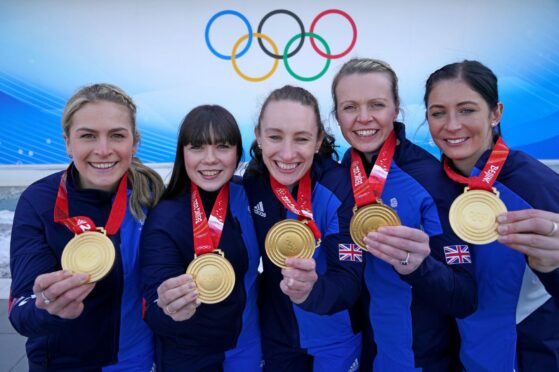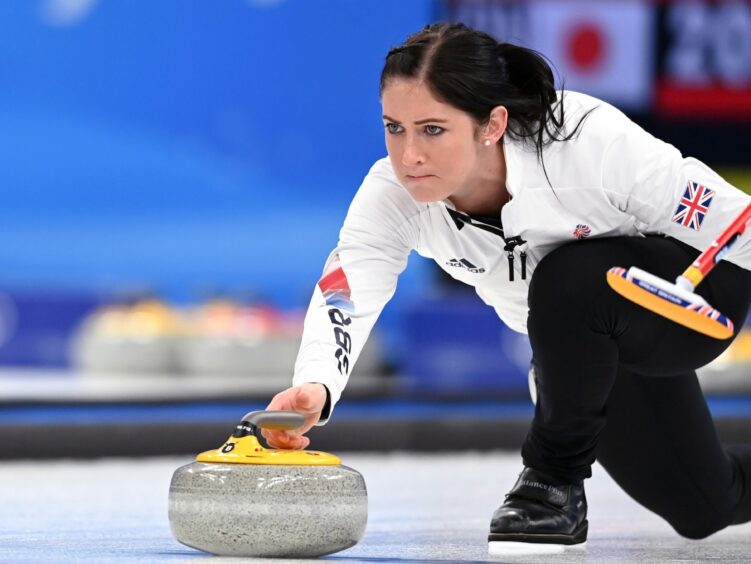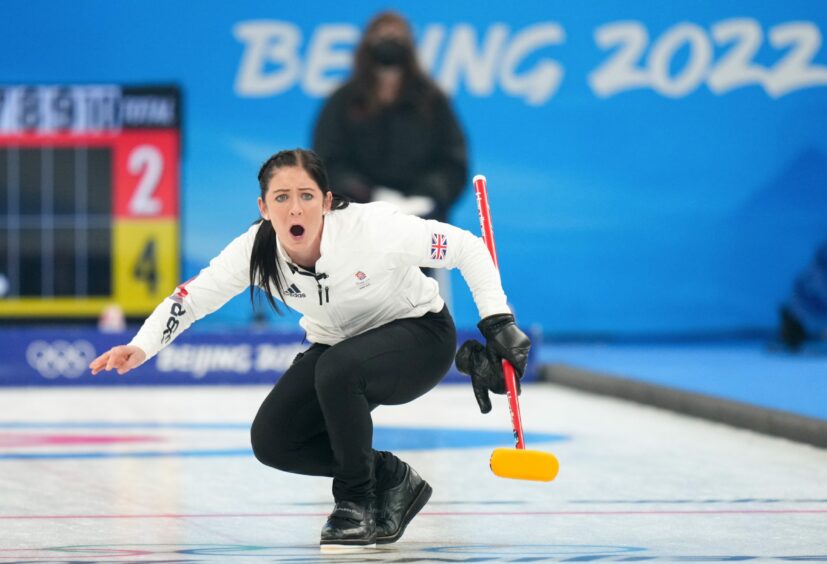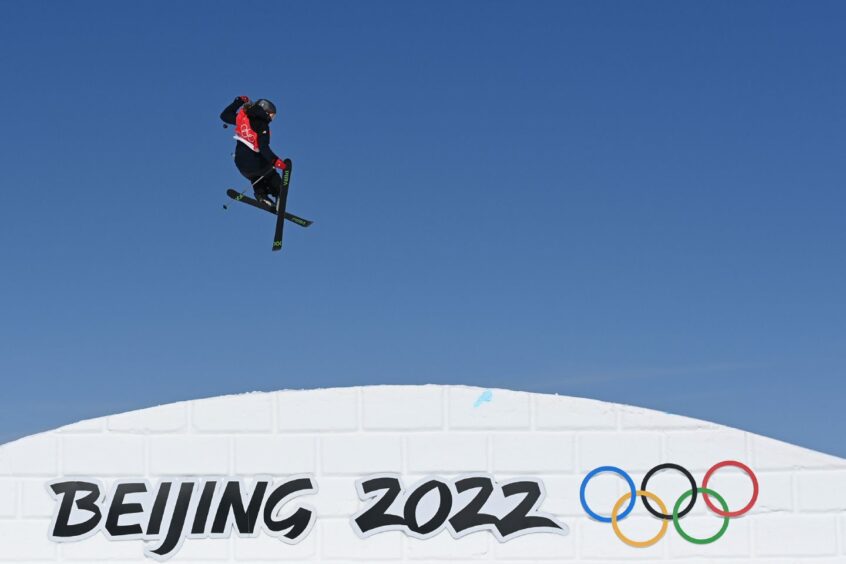There was something spine-tingling about Auld Lang Syne reverberating in Beijing at the end of the Winter Olympics.
These Games have been mired in controversy and blighted by the appalling mismanagement of the drugs scandal which erupted around 15-year-old Kamila Valieva – a minor trapped in a web of deceit and corruption – while Team GB’s participants, for the most part, struggled to make any impact.
Yet, given the resounding fashion in which Eve Muirhead, a woman who has suffered past disappointments, led her team, comprising Jen Dodds, Hailey Duff and Vicky Wright, to a crushing victory over Japan on Sunday morning, their delight, as they captured their country’s only gold medals, was a reminder of how sport can bring so many people together in positivity.
They came, they curled, they conquered with a majestic coup de grace, but only after a nerve-shredding semi-final tussle with reigning world champions, Sweden. Yet now, they are where they deserve to be and let’s hope their success highlights how much hard work and sacrifices they have spent on bringing their Olympic dream to fruition.
Muirhead spoke proudly, passionately and poignantly in the aftermath and Stonehaven’s Jackie Lockhart, a former world champion on the rink, talked about her hopes that their win would persuade more youngsters to try out the game and create momentum for a new generation to take to the ice. Somebody even messaged me at around 4am on Sunday, suggesting she be given a damehood the next time any honours are being distributed.
But forgive me if I’m just a little bit cynical about this latest burst into the limelight for female athletes gaining satisfaction from rolling stones and disproving the theory that you can’t always get what you want.
‘Housewives’ or ‘darlings’
After all, there was similar hype and hysteria 20 years ago when the then Rhona Martin delivered the Stone of Destiny to strike gold in Salt Lake City; an achievement which gained banner headlines, only to be followed by reminders of the everyday sexism which exists in the sporting environment.
I chatted with Martin (now Howie) after she had returned from the US and asked what the response had been to her exploits. She was still buzzing, slightly overwhelmed by the fuss and interview requests and becoming the centre of what seemed like the biggest story in Scotland at the time.
Yet, soon enough, there was pushback, sarcastic comments and demeaning approaches from companies, asking Martin and her colleagues to advertise scrubbing brushes and cleaning products and not-so-subtly suggesting that they had honed their skills by keeping their home floors in pristine condition.
One female journalist even wrote at the time: “I am not sure I really like curling, as it makes me feel guilty that I have not mopped my kitchen.
“The flip side is that now, when we lasses do get round to mopping the floor, we can pretend we are engaged in curling and can holler ‘howeee’ and ‘whoa’ in a Scottish accent.” With friends like that…!
And while they were hailed as “housewife superstars” in some places, the women who won bronze at the Winter Olympics in Sochi in 2014 – which featured 23-year-old Muirhead – were later celebrated as “darlings of the ice”, which ignored their myriad technical skills and temperamental sangfroid and neglected to mention the hours of practice in a quest for perfection behind closed doors to which they had committed themselves for many years.
Some will retort that these are minority views, but sexism is still rife in women’s football – as the Press & Journal and The Courier has highlighted in a recent investigation – and, for all the talk of “legacy” at the end of a major sporting event, the reality is these triumphs often become a nine-day wonder.
It may be even more difficult this time because Britain’s competitors, for the most part, woefully underachieved in Beijing. When the post-mortems begin, it will be important to stress to the BOA that curling was the one activity on the roster which yielded medals – a gold for Muirhead, a silver for Bruce Mouat (and a fourth place finish in the mixed event for Mouat and Dodds).
Nobody should pretend that tens of thousands of new curlers will now flock to rinks throughout Scotland, or that the level of TV coverage will increase significantly. We all know the score and football always takes centre stage, with rugby only gaining attention during the Six Nations Championship.
But Germany has developed a reputation for excellence in bobsleigh down the decades and invests in searching for fresh talent at the grassroots. It obviously works when you look at how many medals they have secured in China.
Eve killed it in Beijing
That same level of vision, forward planning and funding should be implemented to help curling in this country. It’s a grand sport, chess on ice, with an abundance of variations and strategies. And its champions are rightly proud of its inclusivity. Anybody from eight to 80 can get involved.
I remember somebody sending me a letter in 2002, arguing: “When one looks at the behaviour of the loutish grossly overpaid footballers who strut the world stadia and nightclubs, one is greatly reassured by the sight of true Olympians emerging from small-town and rural Scotland.”
A bit extreme? Perhaps. But curling has been around a lot longer than most other pastimes and to watch Eve killing it on Sunday was a genuine pleasure.



